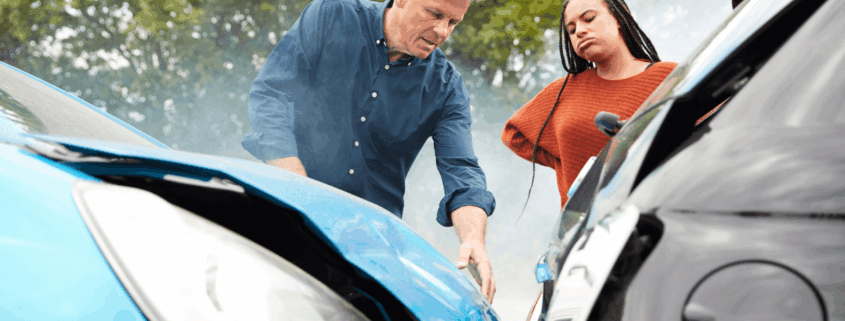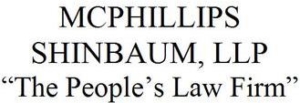The Importance of Uninsured Motorist Insurance for Alabama Drivers
Car accidents are an unfortunate reality on Alabama roads, and while we hope for the best, it is always wise to prepare for the worst. One critical aspect of that preparation involves a type of coverage many drivers overlook: uninsured motorist (UM) insurance. While every driver in Alabama is legally required to carry liability insurance, the reality is that many drivers fail to comply with this law, or they carry only the minimum coverage, which may not be enough to cover serious injuries and damages. This is where uninsured motorist coverage becomes not just beneficial, but often essential.
The Landscape of Uninsured Drivers in Alabama
Despite Alabama law requiring all drivers to carry a minimum amount of liability insurance, the state consistently ranks among those with a high percentage of uninsured motorists. This means that a significant number of vehicles on the road may not have the necessary coverage to compensate you if they cause an accident. The financial implications for victims can be severe, leaving them to bear the burden of medical bills, lost wages, and property damage on their own.
What is Uninsured Motorist (UM) Coverage?
Uninsured motorist (UM) coverage is a component of an automobile insurance policy designed to protect you, your family members, and passengers in your vehicle if you are involved in an accident with a driver who does not have liability insurance. It also typically covers hit-and-run accidents where the at-fault driver cannot be identified.
Types of UM Coverage
- Uninsured Motorist Bodily Injury (UMBI): This covers medical expenses, lost wages, pain and suffering, and other damages resulting from bodily injury caused by an uninsured driver.
- Uninsured Motorist Property Damage (UMPD): This covers damage to your vehicle or other property caused by an uninsured driver. While some states offer UMPD, in Alabama, damage to your vehicle from an uninsured driver is typically covered under your collision coverage, if you have it. UM coverage in Alabama primarily focuses on bodily injury.
How Does Underinsured Motorist (UIM) Coverage Fit In?
Closely related to uninsured motorist coverage is underinsured motorist (UIM) coverage. This protects you when the at-fault driver has liability insurance, but their coverage limits are insufficient to cover the full extent of your damages. For example, if your medical bills and lost wages total $100,000, but the at-fault driver only has $25,000 in liability coverage, your UIM coverage could kick in to cover the remaining $75,000, up to your policy limits.
Alabama law often combines UM and UIM coverage into a single offering, meaning that when you purchase “uninsured motorist coverage,” it typically includes protection against both uninsured and underinsured drivers. This combined coverage provides a vital safety net, recognizing that even insured drivers may not have adequate coverage for serious accidents.
Why UM/UIM Coverage is Not Just Optional, But Necessary
While liability insurance protects other drivers if you are at fault, UM/UIM coverage protects you and your loved ones from the negligence of others. Here’s why it is so important for Alabama drivers:
- Protection Against Uninsured Drivers: With a high percentage of uninsured drivers on Alabama roads, the risk of being involved in an accident with one is considerable. Without UM coverage, you might be left to pay for your injuries and damages out of pocket.
- Protection Against Underinsured Drivers: Even if an at-fault driver has insurance, the state minimum coverage may be far too low to cover severe injuries. Medical costs, rehabilitation, and lost income can quickly exceed basic policy limits. UIM coverage bridges this gap.
- Hit-and-Run Accidents: UM coverage often applies to hit-and-run incidents where the at-fault driver flees the scene and cannot be identified. Without this coverage, you would likely have no recourse for your damages.
- Coverage for Passengers and Family Members: Your UM/UIM policy typically extends its protection to passengers in your vehicle and family members residing in your household, even if they are injured as pedestrians or while riding in someone else’s car.
- Peace of Mind: Knowing you are protected against the financial repercussions of an accident involving an uninsured or underinsured driver can provide significant peace of mind. It allows you to focus on your recovery rather than worrying about mounting bills.
What Damages Can UM/UIM Coverage Cover?
UM/UIM coverage is designed to compensate you for the same types of damages you would typically seek from an at-fault driver’s liability insurance. These can include:
- Medical Expenses: Costs for emergency room visits, hospital stays, surgeries, doctor appointments, prescription medications, and ongoing therapy or rehabilitation.
- Lost Wages: Compensation for income lost due to your inability to work after the accident, including both past and future lost earnings.
- Pain and Suffering: Non-economic damages for the physical pain, emotional distress, and diminished quality of life experienced as a result of your injuries.
- Permanent Impairment or Disfigurement: Compensation for long-term physical limitations or changes to your appearance caused by the accident.
- Property Damage (in some cases): While often covered by collision, UM policies can sometimes include property damage, depending on your specific policy and state laws.
Navigating a UM/UIM Claim
Filing a UM/UIM claim differs from a standard third-party claim against another driver’s insurance. In a UM/UIM claim, you are essentially seeking compensation from your own insurance company. While this might seem straightforward, it can become complex because your insurer, despite being “your” company, will often act like any other insurance company, seeking to minimize its payout.
Steps to take after an accident with an uninsured or underinsured driver:
- Report the Accident: Immediately report the accident to the police and to your insurance company. Provide as much detail as possible.
- Gather Evidence: Collect evidence at the scene, including photos of the vehicles and scene, contact information for witnesses, and the other driver’s information (even if they claim to have no insurance).
- Seek Medical Attention: Prioritize your health by seeking immediate medical evaluation for any injuries, even if they seem minor at first. This creates a record of your injuries.
- Review Your Policy: Familiarize yourself with the specifics of your UM/UIM policy, including your coverage limits and any reporting requirements.
- Consult a Lawyer: Before providing a recorded statement to your insurance company or accepting any settlement offer, it is generally beneficial to consult with a qualified car accident lawyer. An attorney can help you determine the full value of your damages and negotiate effectively with your insurer.
The Role of Legal Assistance in UM/UIM Cases
While you are filing a claim with your own insurance company, it is important to remember that insurance companies are businesses. Their goal is to pay out as little as possible on claims. This can lead to disputes over the severity of your injuries, the necessity of medical treatment, or the overall value of your claim.
An attorney can provide considerable help by:
- Interpreting Policy Language: Insurance policies can be dense and confusing. A lawyer can help you understand your coverage and what your policy entitles you to.
- Valuing Your Claim: An attorney can assess all your damages, including future medical costs and lost earning capacity, to ensure you seek full compensation.
- Negotiating with Your Insurer: Lawyers are experienced in negotiating with insurance companies and can advocate on your behalf to secure a fair settlement.
- Litigation if Necessary: If a fair settlement cannot be reached, your attorney can advise on the feasibility of filing a lawsuit against your own insurance company to compel them to honor your policy.
Making an Informed Decision about UM/UIM Coverage
When you purchase car insurance, it is tempting to focus solely on the minimum requirements or the lowest premium. However, overlooking UM/UIM coverage can be a costly mistake. It is advisable to:
- Review Your Current Policy Annually: Insurance needs can change over time. Regularly review your coverage with your insurance agent to ensure it still meets your needs.
- Consider Higher Limits: While state minimums exist, consider purchasing UM/UIM limits that match your liability coverage, or are even higher, to adequately protect yourself against significant losses.
- Ask Questions: Do not hesitate to ask your insurance agent detailed questions about what your UM/UIM coverage entails and how it would apply in various accident scenarios.
Uninsured motorist insurance is not merely an add-on; it is a critical safeguard for Alabama drivers. It provides a financial lifeline when you are injured by a driver who lacks adequate insurance, protecting you from potentially devastating out-of-pocket expenses. Being proactive about your insurance coverage is a key step in protecting yourself and your family on the road.
Let’s Talk About Your Legal Options
If you have been involved in a car accident in Alabama and are dealing with injuries, especially if the other driver was uninsured or underinsured, Attorney Aaron Luck and the team at McPhillips Shinbaum are here to help. We are ready to discuss your case, explore your legal options, and guide you through the process of seeking the compensation you deserve. Contact us today for a free consultation by calling 334-262-1911 or reaching out to us online.










